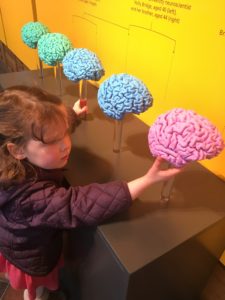Take part in research
There are opportunities for many people to get involved in dementia and ageing research; you don’t have to be elderly or have a dementia diagnosis. It is the diversity of research participants that gives us the best possible chance of expanding our knowledge of the causes and detection of dementias and providing new treatments.
There are many different types of study, which means volunteers can choose a format that suits them. For example, some research tasks can be done from home whilst others take place at University or hospital sites. Some involve undergoing clinical procedures, such as providing a saliva sample, whilst others involve self-monitoring or non-invasive tests, such as mood questionnaires.
By joining the Friends of OxDARE registry, you can be contacted about local future research opportunities. When a new study gets underway, the OxDARE team will invite interested Friends to take part. There is no obligation to take part and you will be able to discuss the study with a researcher before deciding whether it is right for you.
For additional research opportunities beyond OxDARE, click here.
This Privacy Policy explains how OxDARE takes care of your data.
Share your experience

The public has provided invaluable input over the years that has helped shape what OxDARE does and how we communicate our research to the public. In the same way, researchers involve members of the public at all stages of their research projects, from formulating research questions, to helping to deliver effective communication, and designing procedures that give participants the best possible experience. This patient and public involvement (PPI) improves the quality of research we carry out. If you think you would like to get involved in PPI, find more information and contacts here.
OxDARE, along with Oxford Health NHS Foundation Trust, also runs a monthly group for people with MCI, or mild cognitive impairment, to provide access to more information and local services. The Abingdon Afternoon Tea Club provides a sociable environment to chat to others with knowledge and experience of memory problems and share useful hints and tips. Attendees are often keen to get involved in helping with research into MCI. If this interests you, please email us at oxdare@psych.ox.ac.uk.

OxDARE Educational Events
OxDARE takes part in science festivals and health events to promote understanding of how the brain works and what we can do to keep it healthy. An example is our “Brain Fitness” presentations where we share the latest scientific evidence at public meetings and local groups. If you would like us to share this in a group you are involved with, get in touch at oxdare@psych.ox.ac.uk.
Learn more
Learn more about what these OxDARE researchers are doing and see links to scientific publications:
Register for our
news bulletin to keep up-to-date with dementia and ageing research
Professor Clare Mackay uses neuroimaging to understand risk mechanisms for psychiatric and neurodegenerative disease.
Professor Masud Husain studies how the brain directs attention, retains memories and drives motivation and how these mechanisms break down in patients with neurological conditions.
Hear both Masud and Clare talk about new developments in Alzheimer’s disease here.
Professor Kia Nobre studies how the brain supports memory and attention, and how this is disrupted in psychiatric and neurodegenerative disorders.
Dr Vanessa Raymont studies traumatic brain injury, memory disorders and dementia, as well as running clinical trials in cognitive impairment.
More resources
There is a wealth of resources available about dementia and ageing, as well as research being carried out by dementia researchers. By following the links below, you can find out more about dementia, get access to support services available and browse the topics that interest you.
Alzheimer’s Society is the UK’s leading dementia charity. Their website provides dementia guides for patients and carers and includes a dementia directory of support services.
Alzheimer’s Research UK (ARUK) is the United Kingdom’s leading dementia and research charity. As well as providing general dementia information and support, their website is a great source of the latest news in dementia research.
ARUK’s “Think Brain Health” initiative has some great information and advice for all of us about looking after our brain.

For the latest evidence to help us reduce our own risk of cognitive decline and dementia, see WHO public health guidance from 2019.
“Time matters: a call to prioritize brain health” is a recent report by the Think Brain Health Initiative, which provides a lay summary of the current state of knowledge about neurodegenerative diseases and related healthcare practices. It makes recommendations about what healthcare professionals, policymakers, researchers and the general public could do to promote healthy brain ageing and potentially reduce disease or delay its progression.



